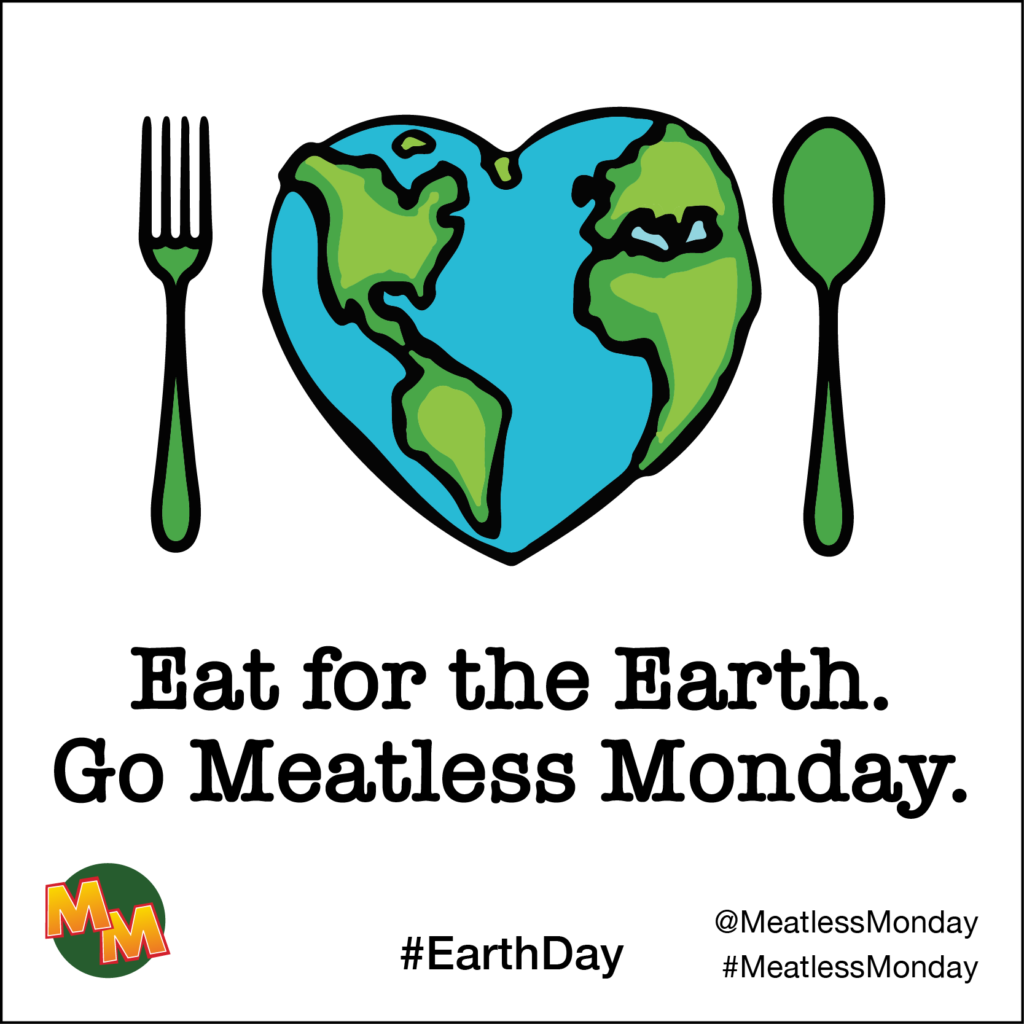Protect the Planet by Going Meatless this Monday
Our daily food choices have a direct impact on the health of the planet. And while it’s true that all foods need resources to produce, research shows that meat and dairy have the greatest impacts on the environment. This isn’t too hard to picture; raising animals to feed billions of people requires huge inputs of land, feed, water, and energy to be processed, stored, and transported.
While the environmental impacts of food production can seem daunting, thankfully there are easy and delicious ways to reduce our individual and collective “foodprints” through eating a more plant-based diet and reducing food waste. But you don’t need to go vegan to make a difference; starting small, like going Meatless Monday, is meaningful and can also lead to eating more plant-based foods throughout the week.


Meatless Monday Tips for Plant-based Eating
Add more fruits and vegetables to your meals
Make meals from the Meatless Monday recipe gallery
Stock your pantry with plant-based staples for quick and easy meals
Enjoy a wide variety of plant-based proteins
Load up your spice cabinet for flavorful meatless meals
Reduce food waste with inexpensive foods that won’t go bad
Get the whole family involved with The Kids Cook Monday meatless recipes
Just how much of a difference does it make replacing animal products with plant-based foods? To help quantify the power of plant-based eating, we’ve collaborated with our academic partners at the Johns Hopkins Center for a Livable Future to gather the facts and figures behind plant-based foods and the environment.
According to calculations from Johns Hopkins, if sixty percent of Americans ate plant-based just one day, it would save the equivalent of 104,000 Olympic swimming pools of water and the land area of the California Redwood Forests.
Hungry for more reasons to go Meatless Monday? Check out the facts below to see the impact that livestock production as on the environment, and how you can help minimize those effects by reducing meat and adding more fruits, vegetables, legumes, and grains into your diet.
Water
Animal agriculture is responsible for about 70 percent of the world’s freshwater use. By 2050, water demand for livestock production is expected to leave half the world’s population living in water-stressed environments. Research shows that eating a more plant-based diet can decrease agricultural water use by 50 percent.
Deforestation
The meat industry is the most significant driver of deforestation, clearing approximately 50 million square miles of forest for agricultural purposes each year. Combining pasture and land used for feed crops, 80 percent of the world’s farmlands are used for livestock production.
Soil Health
Animal agriculture damages soil quality and compromises the health of the ecosystem. Industrial livestock production, through its intensive land management practices, reduces soil fertility and leaves previously fertile regions barren and more prone to natural disaster such as wildfires, flooding, and dust storms. Wide-scale shifts toward more plant-based diets would carry tremendous benefits for soil health and biodiversity.
Biodiversity
Livestock production has led to over 60% decline in species populations since 1970. Animal agriculture disrupts delicate eco-systems, making it one of the greatest human contributors to species decline.
Global Emissions
Meat and dairy production remain the most significant contributors of global greenhouse gas (GHG) emissions, and of these sources, livestock production is the largest, accounting for an estimated 14.5 percent of global GHG emissions from human activities, according to the United Nations.
Interested in learning more about the connection between the food system and the health of the environment? Click here for more facts and figures from our academic partners at Johns Hopkins University.
